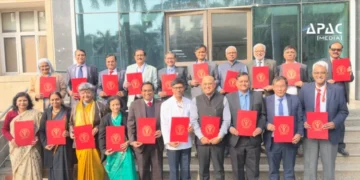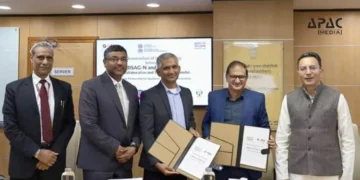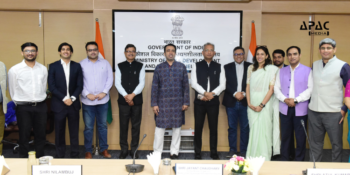Employers In India are expecting cautious hiring in the first quarter of 2025, as ongoing talent shortages continue to hinder recruitment efforts according to the latest ManpowerGroup (NYSE: MAN) Talent Shortage Survey. The survey collected data from more than 3,000 employers across the 4 regions of India, seeking inputs on the Talent shortages they are facing and how do they plan to cope with attrition in their efforts to retain talent as well as their HR priorities in 2025. Despite the highest hiring demand globally (53%), 80% of employers in India are struggling to find the right talent they need, a trend that has persisted since 2022 and is more than the global average, where 74% of employers are reporting talent scarcity (the global figure remains unchanged over 2024). The survey highlights that no region is immune to shortages, and talent scarcity remains a defining feature of the global labor market.
“The persistent talent shortage, with 80% of organizations struggling to fill roles in 2025, underscores the urgent need for collective action, said Sandeep Gulati, Managing Director, ManpowerGroup India and Middle East. Industries like IT, Energy, and Utilities are feeling the greatest strain, with demand for specialized skills like data and IT continuing to rise. In South India, where the shortage is especially pronounced, the pressure on medium and large enterprises is significant. Employers are increasingly prioritizing upskilling strategies to bridge this gap, reflecting a shift towards sustainable solutions over short-term measures like wage increases. Addressing this challenge will require a robust partnership between businesses, governments, and educators to build a future-ready workforce.”
KEY FINDINGS FROM THE 2025 TALENT SHORTAGE SURVEY
- 80% of employers report difficulty finding skilled talent, remaining consistent in the last three years, and increasing 86% from 2021’s survey.
- To find, attract, and recruit talent, employers are offering more upskilling and reskilling opportunities to current employees (39%), as they aim to reduce recruitment costs by promoting internal mobility. Increasing temporary recruitment is favoured by only 22% of employers as they show preference in targeting new talent pools (38%) and increasing wages (29%).
- Talent shortages are most prominent in South India (85%) and have remained consistent with last year.
- When asked about Artificial Intelligence (AI), employers cite training staff, finding qualified talent, and offering more location flexibility (hybrid, remote) as the top challenges to fully leverage the technology
- Company size plays a notable role in talent acquisition challenges, with large organizations (250-999 employees) and very large enterprises (1,000-4,999 employees) reporting an 82% difficulty in filling positions, while the largest organizations (5,000+ employees) face slightly fewer challenges at 80%.




































































Discussion about this post